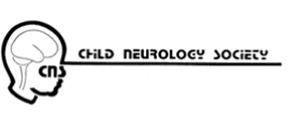Complete Neurological Care is your number one choice for comprehensive and caring neurological treatment in New York. Our board-certified neurologists are experts in their field with decades of experience treating neurological concerns, including Parkinson’s and MS. Our goal is to relieve your pain quickly, safely, and effectively by utilizing our best diagnostic approaches and implementing our trusted treatment procedures.
Do You Have Multiple Sclerosis or Parkinson’s Disease?
Parkinson’s disease and multiple sclerosis are serious conditions that cause gradual loss of motor control. At Complete Neurological Care, we understand that a diagnosis can be quite devastating. However, our NYC doctors are ready to provide comprehensive and compassionate care. Through appropriate treatment, we can often minimize your Parkinson’s disease symptoms and dramatically slow the progression of your disease.
Causes and Symptoms of Parkinson’s Disease
Parkinson’s disease is a progressive condition that causes nerve cells in the brain to break down. This process will lower the levels of dopamine in the brain, causing Parkinson’s symptoms to appear. Signs of Parkinson’s can include:
-
Tremors, especially in the hands and fingers
-
Slow movement
-
Stooped posture
-
Changes in speech pattern
-
Muscle rigidity
-
Loss of automatic movement, such as blinking
At first these symptoms may be barely noticeable, but they will worsen with time.
Diagnosis and Treatment for Parkinson’s Disease
There is no cure for Parkinson’s disease. However, with proper management of your symptoms, you can live a fulfilling, active life for years to come. Parkinson’s disease treatment will vary for each person. Your particular care will depend on your symptoms and how your body responds. Certain medications can raise dopamine levels. Lifestyle changes, such as exercises and extra rest, can minimize symptoms and help you retain motor control. In some cases, surgery, such as deep brain stimulation (DBS), can help control tremors, muscle rigidity, and involuntary movements.
Causes and Symptoms of Multiple Sclerosis
Multiple sclerosis, or MS, is a serious autoimmune disorder. This condition causes the thin protective coating over your nerves, or myelin, to break down. As this happens, the nerves will no longer be able to send signals from the brain to other parts of the body. As a result, you may lose muscle control and mobility. Common symptoms of MS include:
|
|
|
|
|
|
|
|
Typically, you will experience a cycle of relapse and remission, although symptoms will gradually worsen over time.
Diagnosis and Treatment for Multiple Sclerosis
In many cases, we may perform an evoked potential test to diagnose MS. This examination will measure how long it takes for your nerves to respond to stimulation. Once your doctor has an accurate diagnosis, he or she can recommend an appropriate treatment. As with Parkinson’s, there is no cure for MS. However, proper care can slow the progression of the disease and minimize symptoms. Common treatments include oral medications, injections, physical therapy, and muscle relaxants.
To improve above conditions, schedule your appointment today with Complete Neurological Care doctors. Located in Queens, Manhattan, and Long Island. We offer the skills and technology necessary to diagnose and treat common neurological concerns.







